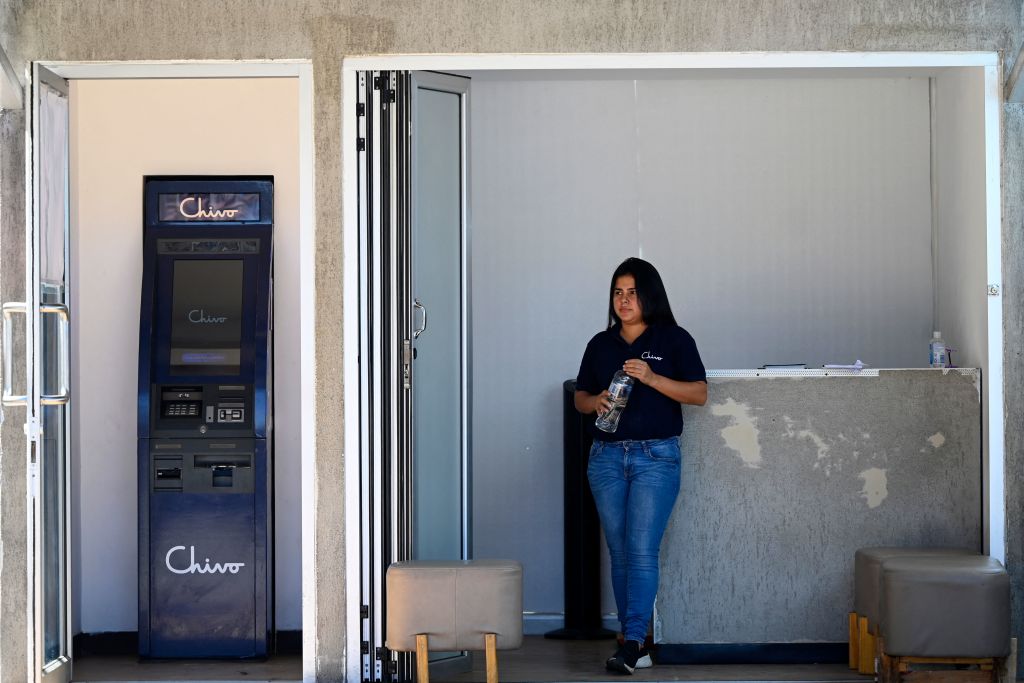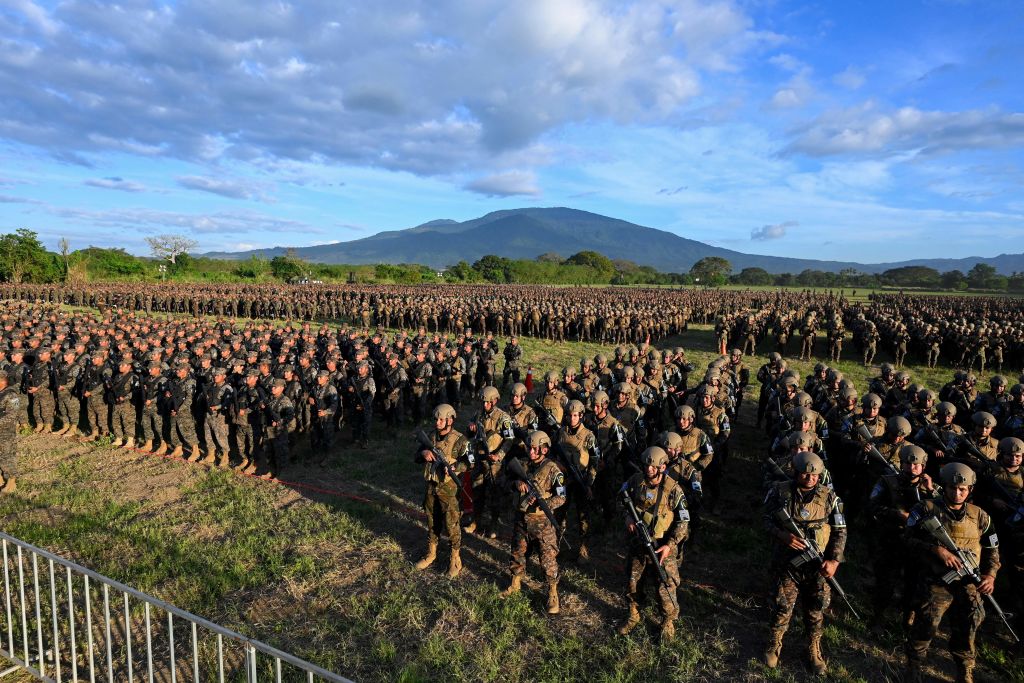Why El Salvador’s Bukele is doubling down on Bitcoin
TThe cryptocurrency crisis, exacerbated by the dramatic collapse of fast-growing crypto exchange FTX in mid-November, has raised questions about the future of these digital currencies. Bitcoin, the biggest and best known among them, has fallen to a two-year low in recent days. But one of the cryptocurrency’s most prominent backers is doubling down.
On November 17, El Salvador’s President Nayib Bukele, who last year made his country the first in the world to adopt Bitcoin as legal tender, responded to the crypto slide with a promise that the government would buy one Bitcoin every day going forward. On Nov. 22, Bukele’s administration sent a bill to El Salvador’s Congress that would allow it to sell $1 billion in so-called “volcano bonds”—government debt, denominated in U.S. dollars and paying 6.5% interest a year to bondholders—to buy even more of the cryptocurrency and build a coastal “Bitcoin City.”
It can be difficult to understand why Bukele is still so enthusiastic about a policy that by almost every standard has been a disaster. Bukele’s efforts to get Salvadorans to use the notoriously volatile cryptocurrency has made the country look like a much riskier place to invest. The policy has stalled El Salvador’s negotiations with the International Monetary Fund (IMF) for a $1.3 billion loan, needed to plug large gaps in public finances. Bukele’s government has been looking for alternative sources of cash, announcing new trade talks with China on November 9. But few economists believe Salvadoran Vice President Félix Ulloa’s claim that China is willing to help El Salvador with its record $21 billion debt burden. it owes to foreign lenders. If it doesn’t find new creditors to help service that debt, El Salvador risks defaulting early next year.
Although Bukele has declined to disclose how much taxpayer money he has spent on Bitcoin, the best guess, based on his purchase announcements, is $107 million, with an additional $200 million on administration and infrastructure — equivalent to nearly 4% of the developing country’s 2023 budget. El Salvador’s Bitcoin holdings are now worth less than $40 million.
To top it all off, Salvadorans just aren’t that keen on Bitcoin: a personal survey of 1,269 residents published by José Simeón Cañas Central American University (UCA) in October found that less than a quarter of respondents had used the cryptocurrency in 2022 Only 17% said the Bitcoin rollout had been a success, while 66% said it was a failure. And 77% want Bukele to stop using public funds to buy Bitcoin.

A public employee is seen at an ATM of the state-owned electronic wallet Chivo in San Salvador on November 17, 2022.
Marvin Recinos—AFP/Getty Images
And yet Bukele’s Bitcoin policies haven’t hurt his approval rating, which has remained reliably above 85% since taking office in 2019. In fact, the cryptocurrency arguably gives the president exactly what he wants. On the world stage, Bitcoin has drawn media attention from El Salvador’s long-standing problem with gang violence, and from the authoritarian moves Bukele has taken to deal with it, including mass arrests, ousting Supreme Court justices who oppose his agenda, and launching an unconstitutional re-election bid in 2024. At home, Bitcoin is a central part of the narrative that Bukele is pushing, both in El Salvador – as a rejuvenated, innovative country, providing new opportunities for young Salvadorans – and of his presidency. He does not present himself as a classic strongman, but as a provocative young visionary who challenges the Western financial elite.
That means Bukele has little incentive to leave Bitcoin – despite mounting losses for his country, says Tiziano Breda, Central America analyst at the Crisis Group. “It’s Bukele’s ultimate [goal] to rebrand the country, he says. “And he doesn’t seem like a person who can admit mistakes. He will go to the final consequences of this experiment.”
Why Salvadorans Don’t Care About Bitcoin
Most credit the president’s sweeping crackdown on gang violence for his soaring approval ratings. Bukele has overseen the arrest of more than 50,000 alleged gang members and a dramatic drop in El Salvador’s homicide rate. Watchdogs say this has come at the expense of “expressing human rights” both for gang members and innocent Salvadorans caught in the crossfire. But the backlash from civil society has been relatively weak, says Breda, and Bukele has succeeded in dismissing protest groups and critical media that appear to the two establishment parties that ruled El Salvador for three decades before him.
Although most Salvadorans do not like Bitcoin, they see the policy more as an eccentricity of Bukeles than as a serious threat to economic security, said Ricardo Castaneda, a San Salvador-based economist at the Central American Institute for Fiscal Studies. Growing concern about public finances has yet to translate into serious economic pain, he says: the government has shielded the population from the worst of global inflation by subsidizing petrol prices. And remittances from the US, which make up a staggering 26.7% of El Salvador’s GDP, have not slowed.

Soldiers listen as El Salvador’s President Nayib Bukele addresses them near a military barracks on the outskirts of San Juan Opico, west of San Salvador, on November 23, 2022.
Marvin Recinos—AFP/Getty Images
Bukele, meanwhile, insists that Bitcoin is the long-term solution to El Salvador’s economic woes. Like most crypto enthusiasts, he says the price will soon increase and eventually deliver huge profits to El Salvador. Meanwhile, the president’s Twitter account shows an endless stream of retweets by foreign crypto-influencers: they celebrate El Salvador’s coffee and beaches, and share narratives of Salvadorans who left the country decades ago and now, apparently thanks to Bitcoin, have decided to return.
A looming credit crunch
There are clouds on the horizon for Bukele’s Bitcoin dream. El Salvador must find a way to pay about $667 million in bonds due in January 2023, and another $1 billion in 2025. The government has announced plans to buy back some of that debt using central bank reserves, hoping to inspire the market enough to sell new bonds. Analysts say such moves could help El Salvador avoid default next year. But with shrinking cash reserves and unsustainably high levels of debt to service, the risk will remain.
If Bukele cannot find buyers for his “volcano bonds” or some other way to plug the fiscal hole, he may be forced to return to negotiations with the IMF. The lender is likely to make a loan conditional on Bukele removing Bitcoin as legal tender and introducing tighter rules on the use of cryptocurrencies, to reduce the risk of criminal groups using El Salvador to launder money.
Bukele will only agree to these terms when the economy begins to struggle enough for Salvadorans to feel it, according to Castaneda. “There’s already a small crack there,” he says, noting that 58% of respondents to the UCA survey in October identified El Salvador’s biggest problem as the economy—a 15% increase from May and the highest share in a decade. (The reduction in concern about crime probably helped). “If things don’t get better, that crack will get bigger and bigger, and then the applause will turn into a bow.”
Until then, Bukele will likely continue to roll the dice on Bitcoin. “He’s like a gambler in a casino who loses,” says Castaneda. “Instead of going away or being more careful, they go all in.”
More must-reads from TIME


